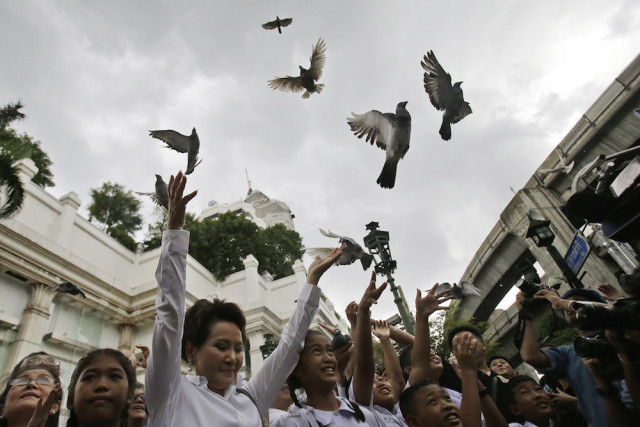As the week of the Bangkok bombing comes to a close, life continues as normal for those unaffected by the events earlier in the week. But a sense of nervousness still permeates the city.
What sets these bombings apart from past events is the target. Tourists have rarely been caught in the fray of the political unrest that frequently takes place in the country. For many, it’s a cause for worry.
In 2010, the Saladaeng BTS station, a popular public transportation station, was hit by five M79 grenades during a political gathering nearby. One was killed. And earlier this year two improvised time bombs detonated near Siam Paragon, a popular shopping center, injuring one. It was also thought to be politically motivated.
But the incidents of this past week are intended to affect tourism by targeting tourists. Many agree with Defense Minister Prawit Wongsuwan who said on Monday, “It was a TNT bomb… the people who did it targeted foreigners and to damage tourism and the economy.”
And unfortunately, Monday’s powerful bomb that left 20 dead and many more physically and emotionally injured, and a second victimless bomb hurled at the popular Sathorn Pier on Tuesday, have in some ways achieved their intention: 23 countries issued travel warnings against Thailand and the price of the Thai Baht has fallen to a six-year low.
But what the perpetrators failed to understand is that Thailand’s tourism industry has remained resilient in the face of natural disasters, events of political unrest, and the 2014 coup d’état — the 12th in the country’s history.
While the bombing has permanently changed the lives of so many, the economy of the country is bound to bounce back in the long term.
And as the week continues Bangkok residents are beginning to bounce back as well — even though a nervousness is still present. It’s a far stretch to compare this anxiety to the Beltway sniper attacks that affected Maryland, Virginia, and Washington, D.C. in 2002, but that similar sense of unknowing is what causes the most fear.
Every tourist attraction is a potential target and the city is filled with them. The public transportation system is efficient and extremely popular, but now using it breeds caution. And it doesn’t help that a common site in the city are backpackers carrying bags almost as big as they are. Many are still worried for the safety of themselves and their loved ones.
People are assuming there will be another attack, but they’re unsure of when and where, especially after the two events took place only a day apart from one another. It’s this fact, this unknowing, that will cause many to stay in over the weekend.
Despite this, many will head out to enjoy the weekend and everything the city has to offer, because there’s a realization that you can’t control the events in a city that caters to tourists where tourists are being targeted.
The perpetrators’ ultimate goal is to spread fear in a city where, despite everything that has happened in its history, people feel generally safe. Bangkok is a bustling city and while it’s likely some will remain cautious, many more will venture out to combat the fear in the only way they can — by not letting it control them.
Don Tartaglione is a former journalist currently working as a communications consultant in Bangkok, Thailand.
 CGTN America
CGTN America Doves are released for peace at the Erawan Shrine at Rajprasong intersection, the scene of Monday’s bombing, in Bangkok, Thailand, Friday, Aug. 21, 2015. Somber horns sounded Friday at the site of Bangkok’s deadly bomb blast as officials joined a multi-religious ceremony for victims of this week’s attack, the latest effort to show that the bustling capital was respectfully, if cautiously, moving on. (AP Photo/Sakchai Lalit)
Doves are released for peace at the Erawan Shrine at Rajprasong intersection, the scene of Monday’s bombing, in Bangkok, Thailand, Friday, Aug. 21, 2015. Somber horns sounded Friday at the site of Bangkok’s deadly bomb blast as officials joined a multi-religious ceremony for victims of this week’s attack, the latest effort to show that the bustling capital was respectfully, if cautiously, moving on. (AP Photo/Sakchai Lalit)
